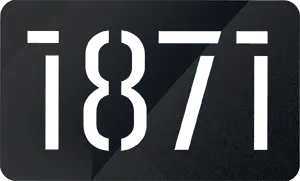“I mean, it’s one banana, Michael. What could it cost? Ten dollars?”
I’ll never forget when I first heardLucille Bluth say this on the sitcom “Arrested Development.” It’s such a great example of easy it is for us as adults to lose sight of what’s going on around us, including what our children and teens are learning – or not learning – at school. From Common Core to remote learning, we’re all a bit prone to replicating Lucille Bluth’s out-of-touch nature when it comes to understanding student curriculum, whether we’re parents, guardians, educators, job recruiters, company leaders or just concerned community members.
Many children don’t understand what adults do for work, and many adults don’t know what children do at school.
At Zebra, we’re working to change both sides of this equation for a reason explained best by my colleague Tom Boehm, in a recent blog post: today’s students are tomorrow’s professionals.
If we want to recruit the best and brightest for our organizations, we must support them from early childhood through higher education.
That’s why we recently kicked off an endeavor with Lake View High School (LVHS), an institution that’s part of Chicago Public Schools’ Early College Science, Technology, Engineering and Math (STEM) School (ECSS) program. The ECSS program is under the Early College and Career Education department and designed to give students access to career-focused courses and STEM learning environments that better equip them for employment post-schooling.
OUR FIRST DAY AT SCHOOL
Admittedly, it was both exciting and nerve-wracking being back in the classroom. I had feelings reminiscent of my first real days at school – especially high school. You don’t know what to expect, yet you know it will be memorable.
Robert McLeod, Director of Customer Experience at Zebra, opened the floor at our first event with an overview of Zebra – what we help businesses achieve, the industries we operate within and a brief recap of our history.
While most of the students weren’t familiar with Zebra prior to our visit, hands raised across the room when Robert asked students whether they shopped at or visited a number of our customers’ businesses.
Next, Ayesha Crockett, Early College STEM Program Manager at LVHS, and I moderated a panel composed of a distinguished and diverse group of Zebra employees:
- Chidi Osuji, Advanced Design Assurance Engineer, Asset Intelligence Technology; and former president of Zebras of African Descent, our inclusion network for Black employees and their allies
- Gayle Frey, Strategic Account Manager, Sales
- Stephanie Perez, Product Manager, Asset Tracking Solutions; and co-leader of UNIDOZ, our inclusion network for Hispanic and Latinx employees and their allies
- Eric Coker, Senior Manager, Data Ops Engineering, Software and Solutions
The Zebra panelists fielded all sorts of questions from the LVHS students: How many hours do you work each week? What is a personal brand? How did you discover Zebra? How much money do Zebra employees make?
Of course, we had to answer them all, even the personal ones. So, we spent a couple hours discussing everything from work/life balance and salaries and commissions, to networking, internships and more.
Additionally, we’d be remiss not to mention how engaged the LVHS students were throughout the event. We were so impressed. LVHS’ core values are represented by the acronym “HOME” – Honor, Ownership, Mastery and Education. While all of these values were on display, we were particularly pleased to see the students exhibiting “ownership,” as they were fully invested in ideating their individual career paths.
BACK TO THE BASICS
While the original intent of working with LVHS was to teach students about STEM topics and prepare them for higher education and entering the workforce, they taught us a few important lessons along the way:
- It’s important to remind ourselves that many basic business concepts are not taught in schools or at home, even though there are endless benefits to learning them. With teachers and parents responsible for so much already, it is our turn as professionals and community members to share our knowledge and expertise.
- Students, like adults, are individuals – they have diverse backgrounds and interests across the board. There is no one-size-fits-all approach to knowledge sharing. While students aren’t to be underestimated, even the students who already have entrepreneurial goals can benefit from learning the basics. Don’t assume everyone has had the same experiences just because they’re sitting in the same room right now.
- We should strive to be just as good at listening as we are at sharing. As adults, we can learn just as much visiting a classroom as a high school student can visiting an office or warehouse floor. We really should embrace reverse mentorships more often, which is when junior employees share their expertise and perspectives with more senior employees – even if it’s something as simple as a spreadsheet tutorial.
Remember, there is always someone smarter than us in the world. And, as we’ve learned at Zebra, that someone might just be the person who we were supposed to be teaching. So, let’s make a pledge to tune in more to those around us, share our knowledge often and stay curious.
Originally Published Here.
Join as an 1871 Early Stage Member.
Attend info sessionSubscribe to our ICYMI newsletter.
Share this post:
